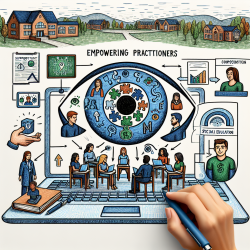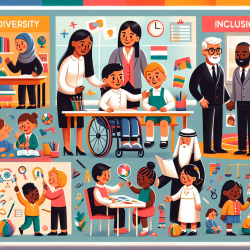The concept of Medical-Legal Partnerships (MLPs) has emerged as a significant model in addressing health inequities, particularly those rooted in racial discrimination and structural determinants. With over 450 sites across the U.S., MLPs integrate legal services into healthcare settings to tackle legal issues that adversely affect patient health. This interdisciplinary approach has proven effective in improving health outcomes among vulnerable populations by addressing social determinants of health.
The Imperative of Addressing Structural Health Inequities
Despite the success of MLPs in improving individual health outcomes, the field faces a critical challenge: addressing the structural determinants of health inequity that are deeply rooted in racial discrimination. These determinants include policies and practices that perpetuate segregation and bias, affecting access to essential resources like housing, education, and employment.
The research article "A Clarion Call for Change: The MLP Imperative to Center Racial Discrimination and Structural Health Inequities" highlights the urgent need for MLPs to broaden their focus beyond individual legal assistance to include systemic advocacy. This involves mobilizing partnerships to address institutional racism and its impact on health disparities.
Implementing the I-HELP Model
The I-HELP model is a framework used by MLPs to screen patients for legal needs that impact their health. It covers areas such as Income, Housing & Utilities, Education & Employment, Legal Status, and Personal & Family Stability. While effective at addressing individual needs, this model must also be applied to tackle structural issues.
- Income: Addressing income disparities through advocacy for fair tax policies and equitable economic opportunities.
- Housing: Challenging discriminatory housing practices and advocating for policies that ensure safe living conditions.
- Education & Employment: Advocating for equitable educational opportunities and fair employment practices.
- Legal Status: Ensuring access to legal protections for marginalized communities.
- Personal & Family Stability: Supporting policies that promote family stability and access to essential services.
The Path Forward: Expanding MLP Impact
To effectively address structural health inequities, MLPs must expand their partnerships and resources. This involves collaborating with academic institutions, community organizations, and policy advocates to drive systemic change. By focusing on policy advocacy and community engagement, MLPs can influence broader societal changes that improve health equity.
Encouraging Further Research and Action
Practitioners are encouraged to delve deeper into the intersection of law and health by exploring further research on racial discrimination's impact on health outcomes. Engaging with academic literature and participating in interdisciplinary collaborations can enhance understanding and drive meaningful change.
The journey towards achieving health equity is complex but crucial. By leveraging the insights from "A Clarion Call for Change," practitioners can play a pivotal role in dismantling structural barriers and advancing justice in healthcare.
To read the original research paper, please follow this link: A Clarion Call for Change: The MLP Imperative to Center Racial Discrimination and Structural Health Inequities.










